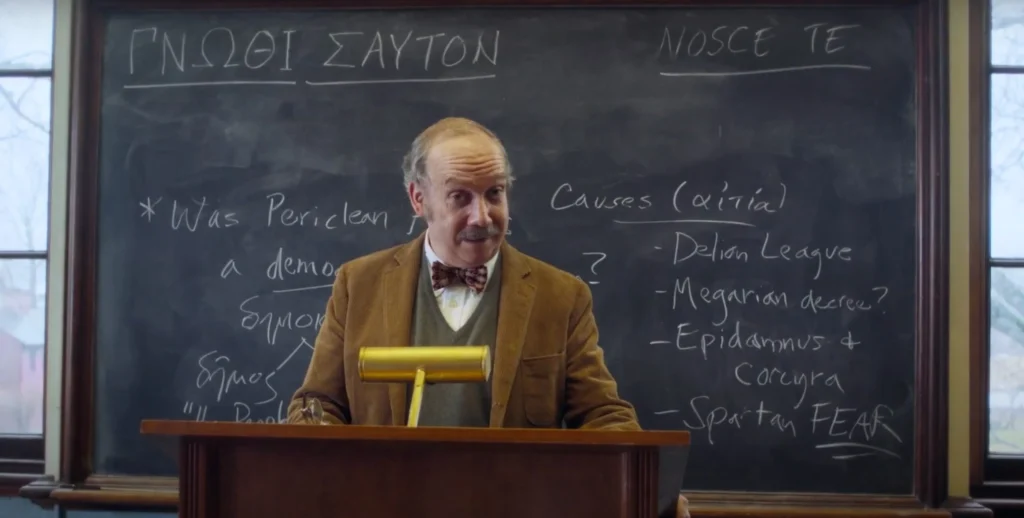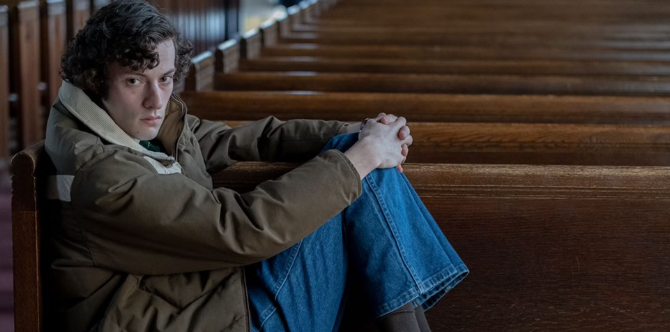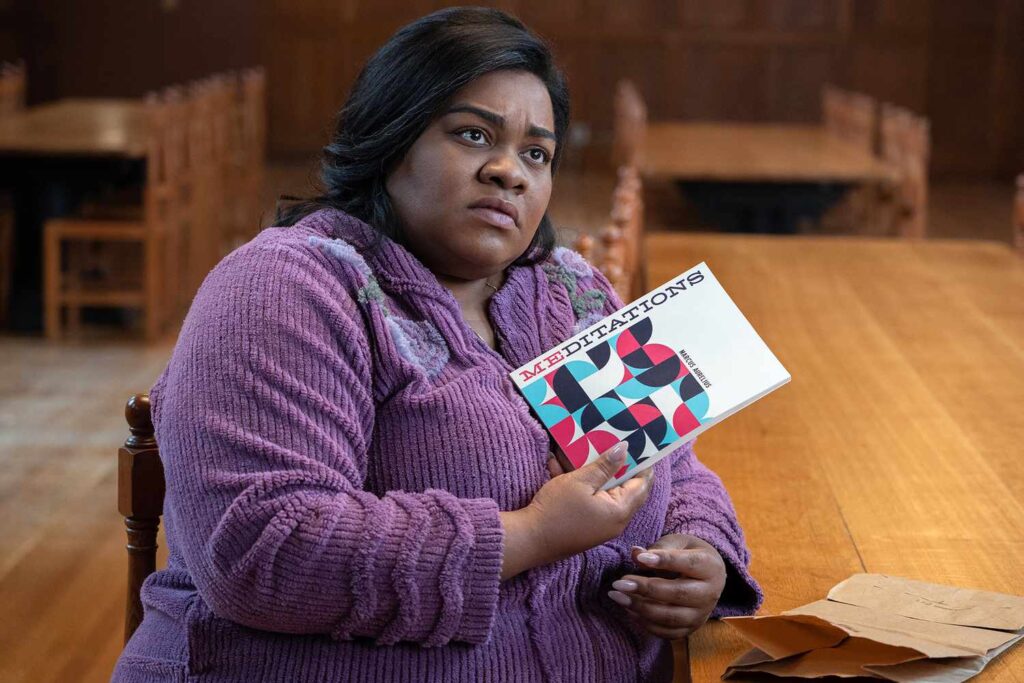Directed by Alexander Payne, The Holdovers is the kind of movie you don’t get to see much. Set in December 1970 and New Year 1971, the film itself feels like it was made in that time, and if you showed it to someone unaware of the film or its talent’s existence, they’d never guess that it’s only a year old. It’s a holiday classic that will be remembered for generations to come.
It’s not like we haven’t seen films like this before—no—but it’s the way the writer-director has crafted it. Stories about Christmas tend to get sappy or cliché, but Payne has managed to pour the right amount of saccharine and pathos into this very interesting story of human connection and bonding with unlikely people in the most unlikely circumstances.

Paul Hunham, played to perfection by Paul Giamatti, is not a likeable character. In the first half hour, I even disliked him. But as the film progresses, we begin to understand who he really is and uncover layers to his character. He starts to seem interesting, and there’s a mystery to him too.
He says he has trimethylaminuria, which renders a fishy odor to his body. Later, he says he has hyperhidrosis when he places his palm on a woman’s hand and she exclaims. He then mentions he’s prediabetic, and we see him taking antidepressants prescribed in his name. Does he really have all these conditions? He says “Barton men don’t lie,” so we’d naturally believe him, but we also see him lying at various other times, which made me rethink. I guess we’ll never know.

Dominic Sessa plays Angus Tully—a character who initially seems like an egotistical know-it-all, but then we come to understand what made him that way, and we empathize with him. Such is Payne’s writing: sensitive and mature, with every reveal feeling earned, never bombarded with exposition.

The star of the show, however, is DaVine Joy Randolph and her character, Mary. She has just the right amount of sass and kindness, and you can’t help but smile every time she’s on the screen. Mary is going through her own loss and is grieving (Randolph made me cry with the sadness in her eyes), yet she is the voice of reason and sensibility for our two flawed men. Her kind nature and wit made me want to be her friend and hug her. If only I could do that. Also, that Oscar is so well-deserved.
Had Oppenheimer not been the big, bombastic cinematic achievement that it was, my vote for writing, acting, directing, and music would have gone to The Holdovers.
Which reminds me—the soundtrack here is beautiful too. Each song is masterfully curated, with lyrics that complement our characters and their journeys. The editing is also impressive, as a record abruptly stops playing and choir music begins in the background just as one scene ends.
That’s inspired filmmaking and the use of music right there. The Holdovers won me over as soon as the credits started rolling because of its warmth, its beating heart, and the grounded, sensitive approach to mental health and loneliness. It presents an aloof and unusual central character without pity or overt sympathy, yet with utmost sensitivity and empathy. This was my first Alexander Payne movie, and it definitely won’t be the last.

Chaitanya Tuteja is someone who enjoys sharing his thoughts on books, movies, and shows. Based in India, he appreciates exploring different stories and offering honest reflections. When not reflecting on his favorite media, Chaitanya enjoys discovering new ideas and embracing life’s simple moments.

